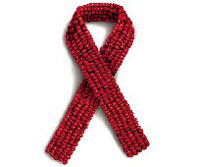
Dance class with Vera!
After a few weeks of sitting in the office every day, writing proposals, going to meetings, and running trainings, we finally got out of the office and into the community on 11 September. In partnership with the ANC Youth League Mzala Branch, SMYN participated in a day of volunteerism at Nkosi’s Haven in Johannesburg.
Nkosi’s Haven is an NGO offering holistic care and support for HIV/AIDS infected mothers, her children, and AIDS orphans (not necessarily infected, but certainly affected).
Nkosi’s Haven is named after Nkosi Johnson, who was born HIV-positive in 1989 and was subsequently separated from his mother when she was no longer able to care for him. He was adopted by Gail Johnson, and first came to public attention when his primary school refused to accept him as a pupil due to his HIV-positive status. It was this incident that catapulted Nkosi into the limelight as it caused action at the highest political level. The South African Constitution forbids discrimination on the grounds of medical status, and the school later reversed its decision, paving the way for HIV positive children around South Africa to attend school. Together with Gail, Nkosi began to actively fight against stigma and discrimination, and was ultimately a keynote speaker at the 13th International AIDS Conference, where he encouraged people with HIV/AIDS to be open about the disease, to seek equal treatment, and to support the introduction of the mother-to-child transmission prevention program (PMTCT).
He died on International Children’s Day, June 1, 2001, at the age of 12.
For Nkosi, it was important for children to be able to stay with their mothers, and with Gail, he opened Nkosi’s Haven, a place where HIV/AIDS infected mothers and children could live freely together, receive care, pursue education, and build their capacity through various activities.
Our involvement with Nkosi’s Haven came at the request of the local ANC Youth League, which asked us to provide soccer coaching clinics to the children who lived at the Haven. Thus, on Saturday, a team of 15 SYMN staff members and ambassadors spent the day at the Haven, preparing meals, doing laundry, conducting soccer clinics and dance classes, and doing yard work.

Somebody needed a break from dancing and came over for a hug instead
Luckily (and hilariously), I helped to conduct the dance clinics with my friend, Vera, who is an award-winning dancer. I take her afro-fusion dance class on Tuesday evenings, and she was gracious enough to volunteer her time on Saturday. Additionally, I allowed the girls to do my hair, which, well, thank goodness I experienced my fair share of tangles when I was a kid because I don’t know how else I could have withstood what happened to my scalp that day.
The volunteer event was a total success, and we’ll be conducting soccer and ball-juggling clinics and dance classes once a month from now on.
On that note, I want to leave you with the final words of Nkosi’s keynote address at the 13th International AIDS Conference, hosted in Durban:
Care for us and accept us- we are all human beings. We are normal. We have hands. We have feet. We can walk, we can talk, we have needs just like everyone else- don’t be afraid of us- we are all the same!
You can read the rest of the address (which he wrote himself) here:
Nkosi’s Keynote Address
 There is a lot to be thankful for this year in terms of the AIDS epidemic, specifically the recent strides made in HIV prevention research. The CAPRISA 004 trial results and the recent results from the iPrEx PrEP effectiveness trial (which showed that once-daily Truvada reduced risk of HIV infection in gay men, transgender women and other men who have sex with men by an average of 43.8%) are something to be celebrated!
There is a lot to be thankful for this year in terms of the AIDS epidemic, specifically the recent strides made in HIV prevention research. The CAPRISA 004 trial results and the recent results from the iPrEx PrEP effectiveness trial (which showed that once-daily Truvada reduced risk of HIV infection in gay men, transgender women and other men who have sex with men by an average of 43.8%) are something to be celebrated!










